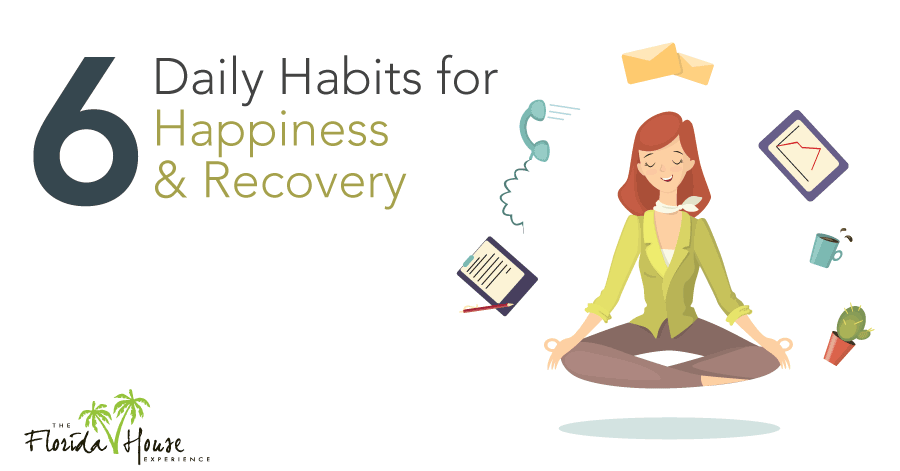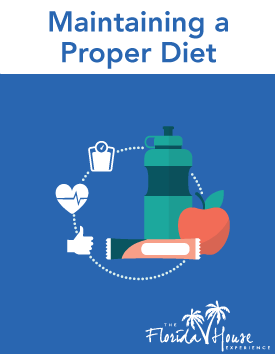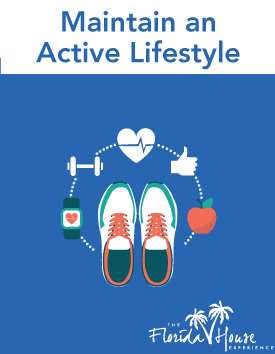
When dealing with drug and alcohol addiction, happiness and recovery are heavily intertwined. Despite this relationship, what they mean and how to achieve them change person to person. However, the two things that are known for sure are that it is not possible to be happy while addicted to substances and it is impossible to quit a habit without undergoing recovery. Therefore, one should begin the process of bettering oneself using small steps every day.
1. Create a Foundation
If you are currently using and substances either because of an addiction or you are reliant on them to self-medicate (without a prescription) you should first seek a path to free yourself from those bonds. Without a strong foundation, free from the supplemental chemical doses, the coming steps won’t be nearly as effective. These programs, like our Florida opiate detox center, are usually somewhere around a week long and help to make sure you adhere to a daily structure early on in your recovery process. You can find twenty-four-hour supervision and medical care to help you deal with withdrawal symptoms by any healthy means necessary and with the aid of specialists. Detox programs are so organized that they are often the best way for users to get through a day without needing to abuse drugs.
Medical detox itself is the process of ridding the body of harmful substances. The reason why they last for about a week is due to how long it takes for the body to maintain stability without the use of drugs. Medical drug detox allows doctors to provide medication and care that will help through painful withdrawal symptoms. These withdrawal symptoms can be nearly impossible to endure on your own without medical situation. Additionally, the doctors can create a plan based on your unique situation, body type, gender, and drug of choice. With all this knowledge and experience looking over you, the detox process becomes much less intimidating.
2. Maintain proper diet and nutrition

Foods that contain proteins and vitamins are essential to proper brain function and bodily health. Physical benefits aside, eating cleanly can improve your mood, boost body positive, reduce drug cravings, and encourage you to further take care of your body. Your mental health is also positively impacted as feelings of irritation and anxiety are reduced. Often times, supplements can help you to get the nutrients you might not be able to from food. This is significant as many dealing with addiction are deficient in vitamins or iron or vitamins. So find a diet that suits you, eat healthy foods that fulfill your daily caloric requirement, and use supplements to make up for what is are lacking. There are services available online that can evaluate your diet and see what vitamins and nutrients you are deficient in. By balancing out nutrients and vitamins in your body you will improve your motivation, drive, and happiness.
3. Use prescribed medication if needed
Usually, there is a social stigma to people struggling with addiction needing to use the medication in recovery. There is a perception that needing pills to get over drugs is a sign of weakness. This is completely wrong. Withdrawal and addiction occur on a case-by-case basis and there is no one size fits all approach to rehabilitation. Some medicines minimize the cravings for drugs and are recommended by healthcare providers. This method is particularly popular in the treatment of opioid addiction, a rising crisis in the United States. Lofexidine is a non-opioid medication that can help to ease the discomfort of withdrawal. It is also approved by the Food and Drug Administration.
Other frequently implemented drugs for pain management are methadone and buprenorphine which bind to the receptors in the brain that heroin does. However, the drugs are weaker and cravings not as strong, allowing for users to gradually reduce their need for a high. Naltrexone, however, cuts off those receptors and blocks the effects of opioids. These options are great for people who have been to treatment multiple times and for people who continue to relapse after receiving treatment. If you are wondering if any of these options are right for you or a loved one, call today to have all your questions and concerns answered. We can guide you through the processes of using these medicines and recommend what would be best based on your unique situation.
4. Maintain an active lifestyle

Sweat also helps to rid the body of toxins from drug and alcohol and working out will push you to drink more water. The journal Frontiers in Psychology published research that showed regular exercise also prevents relapse. Other forms of less intensive exercise are stretching and yoga. On a day you are too tired for hard labor, such practices still stimulate blood flow and circulation. They have a calming effect that makes you more aware of and at peace with your emotions. All it takes is to set aside a period of time every day to do something that keeps you active. Whether you decide to lift weights or simply go for a walk, it is imperative to find something that keeps your body active. The medical benefits and positive contributions to the recovery process are the biggest reasons those in recovery to stay active.
5. Drink a lot of water
A common sign of withdrawal is dehydration and many times people mistake thirst for drug cravings. Drink enough water to let the brain and body heal from the effects of drug use. Water makes up almost sixty percent of your weight and is the main chemical component of the body. It is integral to the functioning and health of every single cell, tissue, and organ that together work to keep you alive. Drugs can take a toll on those systems but water reverses some of that wear. In addition, water filters waste from alcohol and drugs out of your body through sweat, urination, and bowel movements. Men require about 15.5 cups (or 3.7 liters) of fluids while women need 11.5 cups (2.7 liters) to maintain a healthy internal balance. Maintaining hydration is the most important part of keeping a healthy balanced diet. No matter what your diet is, if you don’t have the proper hydration you are hurting your body and mind.
6. Get plenty of rest
When you are better rested, it is scientifically proven that your cognitive functions are greatly improved. The proper amount of sleep every night will help you deal with drug cravings and mood changes. It also counteracts the symptoms of drug withdrawal, which include insomnia and restlessness. Usually, drugs disrupt your sleep schedule and so a huge part of recovery is making up for all of that rest your body was deprived of. Ensure that you regulate your schedule and do not oversleep. Go to bed at night and wake up in the morning at the same time regularly. Maybe even allow yourself a short nap every day to recharge your battery and keep you energized. It is important to remember not to overstimulate yourself before going to bed. Avoid watching television or exercising late into the night. Practice breathing techniques to relax your body and put yourself into a state of calm.
Getting Addiction Treatment Help
The time to start recovery is now. There is no need to think about it. Drug and alcohol addiction are impediments to your happiness. A popular misconception is that rehabilitation is expensive, but there are things that you can change in your daily life that will assist you in getting sober. If you need any medications, the cost of them is nowhere near what it takes to maintain a regular drug habit. Florida House provides numerous treatment outlets and can help to carve out a detox program that appeals to your individual needs. If you or anyone you know wants to begin the life-changing process of recovery, please do not hesitate to contact us at (833) 596-3502 for advice.






